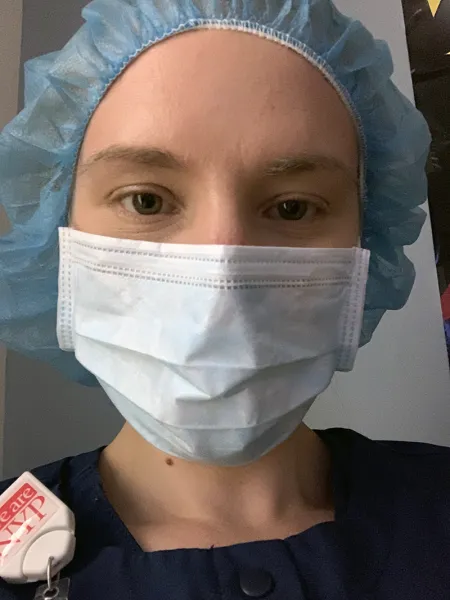During the first few days of a new job, employees often spend time filling out paperwork, setting up accounts, touring the work site, and getting to know colleagues in a steady progression of settling in. But for nursing student Angela Grumley ’17, her worst few hours on the job in a COVID-19 ward were her first two hours — and they were also two of her most exciting.
Grumley, who received a public health degree from IC, was set to graduate from Columbia School of Nursing in August and then stay for her doctorate of nursing practice. But when the university sent students home, shifting to online classes because of the pandemic, she and her fellow nursing students felt they had skills to contribute. Columbia and New York-Presbyterian Hospital agreed and offered them eight-week contracts during the peak of New York City’s COVID-19 crisis.
